OUR SERVICES
As the largest practice in San Antonio, our board certified doctors and medical staff are experts at treating ailments in children and adults. Our team of medical professionals is committed to caring for patients with asthma, allergies and immunology issues. We seek to improve the quality of lives for our patients and their families by providing them with comprehensive medical services in a timely and caring manner.
ALLERGIES
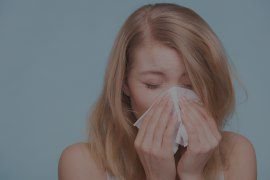
An allergic reaction typically triggers symptoms in the nose, lungs, throat, sinuses, ears, lining of the stomach or on the skin. An allergic reaction begins in the immune system. Our immune system protects us from invading organisms that can cause illness. If you have an allergy, your immune system mistakes an otherwise harmless substance as an invader. This substance is called an allergen.
ALLERGY DROPS

As an alternative to shots, allergy drops is an effective way to treat environmental allergies. Instead of injections, patients are given drops under the tongue to help reduce allergic symptoms. Small doses of what patients are allergic to are given in small doses, which builds up their tolerance to the allergen. We test and confirm allergies before beginning the treatment program.
ASTHMA
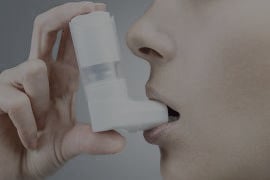
Asthma is a chronic disease involving the airways in the lungs. These airways, or bronchial tubes, allow air to come in and out of the lungs. If you have asthma your airways are always inflamed. They become even more swollen and the muscles around the airways can tighten when something triggers your symptoms. This makes it difficult for air to move in and out of the lungs, causing symptoms such as coughing, wheezing, shortness of breath and/or chest tightness.
ATOPIC DERMATITIS (ECZEMA)

Eczema is a chronic or recurrent inflammatory skin disease that usually begins in the first few years of life. It is often the initial indication that a child may later develop asthma and/or allergic rhinitis (hay fever). In infants, eczema usually appears as tiny bumps on the cheeks. Older children and adults often experience rashes on the knees or elbows (often in the folds of the joints), on the backs of hands, or on the scalp. Other symptoms of atopic dermatitis include patches of skin that are red or brownish, itchy skin, especially at night or dry cracked or scaly skin.
FOOD ALLERGY

Your immune system overreacts to a particular protein found in that food. Symptoms can occur when coming in contact with just a tiny amount of the food.
Many food allergies are first diagnosed in young children, though they may also appear in older children and adults. Eight foods are responsible for the majority of allergic reactions:
- Cow’s milk
- Fish
- Shellfish
- Tree nuts
- Eggs
- Peanuts
- Soy
- Wheat
HIVES / SWELLING
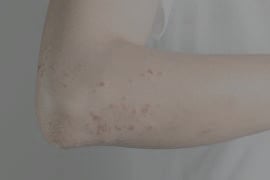
Hives (urticaria), involve red, itchy, swollen areas of the skin that range in size and appear anywhere on the body. They can appear suddenly, and may be the result of an allergic reaction. Some people have chronic urticaria that occurs almost daily for months or, in some cases, years. Hives may be triggered by viral infections, temperature extremes, water, sun and physical exercise.
INSECT VENOM ALLERGIES
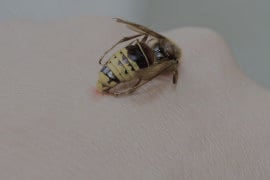
If you are insect-allergic, after the first sting, your body produces antibodies called Immunoglobulin E (IgE). If stung again by the same kind of insect, the venom interacts with this specific IgE antibody, triggering the release of substances that cause an allergic reaction.
PET ALLERGIES

Allergies to pets are caused by protein found in the animal’s dander (dead skin cells), saliva or urine. For birds, many people are allergic to the excreta. The proteins from pets are carried on microscopic particles through the air. When inhaled, they trigger reactions in allergic people. As all dogs and cats possess these proteins, none of them is allergy-free. Though some breeds are considered more allergy-friendly, it is likely because they are groomed more frequently, a process that removes much of the dander. It is a common misconception that people are allergic to a dog or cat’s hair, and it is falsely believed that an animal that sheds less will not cause a reaction.
RECURRENT INFECTIONS

Your immune system is constantly on the defense-fighting germs that could cause infections.
If you experience the following, then you are experiencing recurrent infections:
- Need more than four courses of antibiotic treatment per year (in children) or more that two times per year (in adults)?
- Experience more than four new ear infections in one year after 4 years of age.
- Develop pneumonia twice over any time?
- Have more than three episodes of bacterial sinusitis in one year or the occurrence of chronic sinusitis?
- Need preventive antibiotics to decrease the number of infections?
- Develop unusually severe infections that started as common bacterial infections?*
RHINOSCOPY
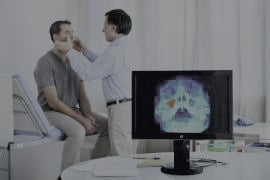
This procedure involves a thorough examination of the nasal passages. Patients experiencing sinusitis and other related health issues have a scope placed in their nasal passages to inspect for inflammation or abnormal issues.
RUSH THERAPY

This type of therapy is an accelerated type of therapy for allergies because the doses are more rapid than traditional immunotherapy. The treating physician consults you about the benefit and risks of the rush therapy, along with the proposed length of treatment.
SINUSITIS

If your stuffy nose and cough last longer than one or two weeks, you may have more than a cold. Rhinosinusitis is a swelling of one or more of your nasal sinuses and nasal passages. It is often called sinusitis or a sinus infection. You may experience pressure around your nose – eyes or forehead, a stuffy nose, thick, discolored nasal drainage, bad-tasting post-nasal drip, cough, head congestion, ear fullness or a headache. Symptoms may also include a toothache, tiredness and, occasionally, a fever.
BIOLOGICS
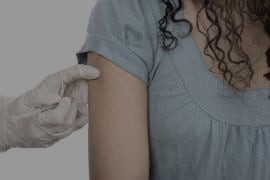
A biologic may be the answer for patients still having symptoms despite the use of standard controller medications. AllergySA offers several biologic therapies for the treatment of moderate to severe asthma including Xolair (omalizumab), Fasenra (benralizumab), Dupixent (dupilumab), Nucala (mepolizumab) and Cinqair (reslizumab).
LOCATION INFORMATION
Medical Center
2424 Babcock Road, Suite 301
San Antonio, TX 78229

Monday: 8:00am – 5:00pm
Tuesday: 8:00am – 5:00pm
Wednesday: 8:00am–5:00pm
Thursday: 8:00am – 5:00pm
Friday: 8:00am – 12:00pm
Saturday: 8:00am – 12:00pm
Monday: 8:00am – 4:40pm
Tuesday: 8:00am – 4:40pm
Wednesday: 8:00am–4:40pm
Thursday: 8:00am – 4:40pm
Friday: 8:00am – 11:40am
Saturday: 8:00am – 11:40am
Southside
7500 Barlite Blvd #106
San Antonio, TX 78224
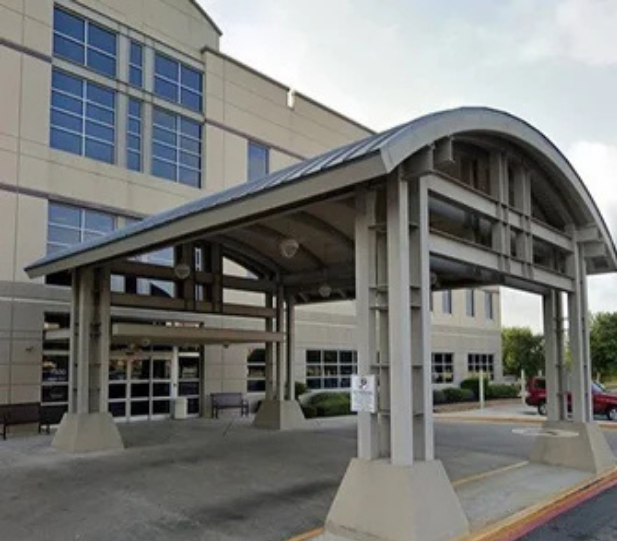
Monday: 8:00am – 5:00pm
Tuesday: 8:00am – 5:00pm
Wednesday: 8:00am–5:00pm
Thursday: 8:00am – 5:00pm
Friday: 8:00am – 12:00pm
Monday: 8:00am – 4:40pm
Tuesday: 8:00am – 4:40pm
Wednesday: 8:00am–4:40pm
Thursday: 8:00am – 4:40pm
Friday: 8:00am – 11:40am
CONTACT INFORMATION
OFFICE: (210) 616-0882 | FAX: (210) 692-7833



